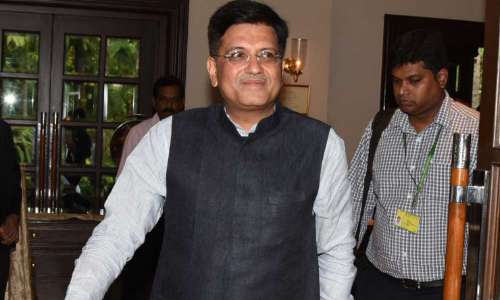New York: India’s Union Minister Piyush Goyal will on Friday receive the prestigious Carnot Prize from the Ivy League University of Pennsylvania in recognition of his work for rural electrification while he held the power and renewable energy portfolios.
The Carnot Prize is given “for distinguished contributions to energy policy”, the Philadelphia-based university said.
“During his tenure (as Power Minister), Goyal directed a fast-track effort to electrify 18,000 villages in remote parts of India, helping bridge the country’s vast energy divide,” it said.
Goyal, who is now the Minister for Railways and Coal, headed the Power and Renewable Energy Ministries from 2014 to 2017 and oversaw the the big push for rural electrification.
The university cited an International Energy Agency (IEA) report that said that if the pace of electrification continued, India will achieve “one of the largest successes in the history of electrification” by having electricity for all by 2020.
The ambitious electrification goal is driven by the Deen Dayal Upadhyaya Gram Jyoti Yojana launched by Prime Minister Narendra Modi in 2015.
The award is to be presented in Philadelphia by William W. Burke-White, the university’s professor of law.
A lecture in honour of Goyal is to delivered by Aaswath Raman, an assistant professor of electrical and systems engineering, on “An Untapped Renewable Energy Resource: The Cold of Space”.
The award is named after the 19th century French scientist Sadi Carnot, who predicted that the steam engine would revolutionise human development and whose work is the basis of the second law of thermodynamics.
Previous recipients include Gina McCarthy, who headed the US Environmental Protection Agency, and Fatih Biron, the IEA Director.
IEA’s 2017 Energy Outlook report said: “Universal household electricity access by 2022 was a central political commitment in India’s 2014 national elections and the government has placed a high priority on delivering it.”
Outlining the scale of India’s achievement, IEA said: “Half a billion people have gained access to electricity in India since 2000, almost doubling the country’s electrification rate. This remarkable growth puts India on course to achieving access to electricity for all in the early 2020s – a colossal achievement.
“The pace has accelerated in recent years, with an additional 40 million people gaining access each year since 2011.”
IANS







































